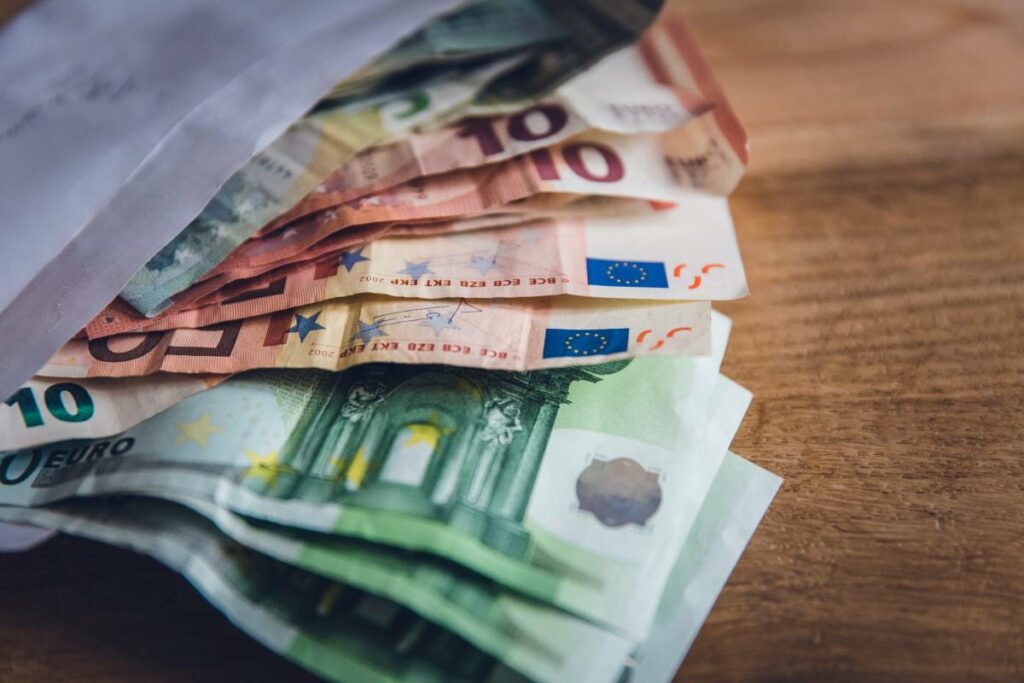what is IVA/VAT in Spain?
Value Added Tax, commonly referred to as VAT, is a fundamental component of the tax system in Spain and numerous other countries around the world. This consumption tax is levied on products and services at various stages of their journey through the supply chain, encompassing everything from their initial production to their ultimate sale to the end consumer.
VAT operates on the principle of taxing the value added to a product or service at each step of its production and distribution, making it a pivotal revenue source for governments while also influencing consumer behavior and economic activity. In Spain, VAT plays a crucial role in shaping fiscal policies, revenue collection, and overall economic dynamics, reflecting its significance in the broader landscape of taxation and finance.
This introduction will delve deeper into the intricacies of VAT in Spain, exploring its various aspects, implications, and the way it affects businesses and consumers alike.
What is VAT called in Spain?

In Spain, Value Added Tax, known as IVA (Impuesto sobre el Valor Añadido), is a key component of the taxation system. It applies to both goods and services within the country. The standard IVA rate in Spain is 21%, but there are specific categories of goods and services that qualify for reduced rates, which can be as low as 10%, 4%, or even 0%.
Ensuring compliance with IVA regulations in Spain is of paramount importance for businesses. Spanish authorities have established comprehensive IVA rules to govern and oversee the recording and processing of transactions carried out within the country. These rules encompass a wide range of considerations, including how to handle the requirements of invoices acquired in Spain, procedures for reporting and handling foreign currency transactions, protocols for correcting errors on previous transaction returns, guidelines for issuing credit notes and making corrections, as well as the specific record-keeping requirements for all financial transactions carried out by a business operating in Spain.
Navigating these IVA regulations is crucial to conducting business in Spain and staying in good standing with the tax authorities, making it essential for enterprises to have a solid understanding of these intricacies.
When did Spain start VAT?
The Value Added Tax (IVA) system in Spain was introduced in 1986, coinciding with Spain’s accession to the European Union (EU). This introduction of IVA marked Spain’s compliance with EU directives, as EU member states were obliged to incorporate these directives into their national VAT laws. The oversight and management of VAT-related matters in Spain are administered by the Agencia Estatal de Administración Tributaria.
VAT in Spain is applicable to businesses engaged in the sale of goods or services that fall under the purview of Spanish tax regulations. Businesses operating in Spain are required to obtain a Spanish VAT registration, and they must also regularly submit returns that provide detailed information about their taxable products. These returns typically encompass data related to the business’s sales and expenses for the given quarter. The submission of these returns is due by the 20th day of the month following the respective reporting period. This ensures that businesses in Spain comply with the tax regulations and meet their obligations to the Spanish tax authorities.
Do I have to pay Spanish VAT?

Spain, in common with many countries worldwide, employs a Value Added Tax (VAT) system for its products. However, Spain has its own distinct variation of VAT, setting it apart from the majority of EU member states.
In Spain, imported goods are subject to taxation either at the point of importation or during a critical juncture known as the “point of exchange,” which denotes the transfer of title. The VAT return submitted by businesses contains comprehensive details about the VAT owed. Furthermore, services are taxed either at the time they are provided or when they are enjoyed by the consumer.
Do you want to live in Spain?
Our law firm has more than 15 years of experience.
Despite these variations, Spanish VAT rates broadly adhere to the guidelines established by the EU. This means that Spanish VAT rates are set according to EU standards, with a standard VAT rate typically exceeding 15%. This standard rate, currently standing at 21%, applies to all taxable goods and services.
Spain also employs reduced VAT rates in specific essential social sectors. The 10% reduced rate, for instance, is applied to various critical areas, including select foods, water bills, specific medical and pharmaceutical equipment, domestic transportation services, agricultural supplies, social housing, repairs and renovations, hotel accommodations, waste collection, certain social services, soft drinks, bars, cafes, nightclubs, alcoholic beverages, amateur sporting and cultural event admissions, as well as water treatment and waste management.
A 4% reduced tax rate is levied on items such as certain foods, medical and pharmaceutical products, newspapers, periodicals, social housing, domestic care services, and construction services.
Lastly, a 0% reduced tax rate is applicable to particular items like gold coins, ingots, bars, as well as domestic and international air or sea travel, which makes for a comprehensive and nuanced VAT system in Spain.
What services are exempt from VAT in Spain
In Spain, there are certain services that are exempt from Value Added Tax (VAT). One notable category eligible for a 0% reduced tax rate, effectively making them VAT exempt, includes items of significant value such as gold coins, ingots, and bars. If your business deals in the provision of these items or brings them into Spain, it qualifies for this special tax treatment.
Additionally, both internal and international travel by air or sea falls under the category of VAT exemption. Internal travel refers to journeys within the country using air or sea transportation. This exemption aims to stimulate economic growth, as businesses frequently rely on air and sea transportation for importing and exporting goods, which ultimately enhances the quality of life for citizens. As a result, these exemptions are considered positive contributors to economic development and serve to encourage more people to engage in such activities while facilitating businesses in achieving their objectives.
Can I claim VAT back in Spain?

Individuals who are not residents of the European Union (EU) can claim VAT refunds on purchases made in Spain and subsequently taken back to their country of residence. To access this VAT refund, the rules in Spain require individuals to follow a specific procedure.
To initiate the VAT refund process, you need to obtain and complete Tax-Free forms, which are typically available at the stores where you made your purchases. Once the form is completed, it must be validated within 3 months of the purchase at the Customs Office.
Alternatively, you can claim your VAT refund through the electronic VAT refund procedure, known as DIVA. This digital process streamlines the validation process and expedites it significantly. To do this, you can request the DIVA form from the shops where you made your purchases and then validate it at the automatic terminals located at major airports and ports in Spain.
To ensure a smooth and hassle-free process, it’s essential to have the following documents and items on hand: your passport, receipts or DIVA forms for all eligible purchases, the actual goods you bought, and your boarding pass. Once your form is validated by Customs or the electronic service, you have two options for reclaiming your VAT:
Do you want to live in Spain?
Our law firm has more than 15 years of experience.
Tax Free Management Access Point: Located at your departure point within the EU, you can have your refund immediately issued in Euros through methods such as a cheque, bank transfer, credit card, or cash. Please note that a service fee may be charged for this process.
Shop Where You Made the Purchases: You can also claim your refund at the store where you originally made the purchases. The full refund amount will be issued within 15 days through methods such as a cheque, bank transfer, or credit card.
It’s important to remember that you can only claim a VAT refund when leaving the EU. This means that your refund will only be issued at your final departure point within the EU. If you’re traveling from Spain to another EU country, you’ll need to wait until you reach your last departure point within the EU to claim your refund.
There are various authorized partners for VAT refunds in Spain, including Global Blue, Tax Free Shopping Planet, Innova Tax Free Spain, Comerica Global Payments, Tax Free El Corte Inglés, B Free! Tax Back, and Travel Tax Free.
Digital validation for VAT refunds is available at several Spanish ports and airports, including Madrid’s Adolfo Suárez Madrid-Barajas Airport, Málaga-Costa del Sol Airport, Port of Algeciras, Port of Tarifa in Cádiz, Alicante-Elche Airport and Port, Valencia Airport, and Barcelona-El Prat Airport (Terminals One and Two). Palma de Mallorca Airport in Palma de Mallorca also offers this service.
For those who prefer an advance refund, Global Blue provides the option to receive your refund before stamping your forms at Customs on the last day of your trip in Spain. You can do this by visiting one of their offices or kiosks located in Madrid, Girona, Lloret de Mar, Valencia, Puerto Banus, and Barcelona. Simply present your credit card and send the Tax Free form to Customs within 21 days.
If you operate a foreign business that supplies taxable goods to Spain and are unable to register for a Spanish VAT number or your business pays Spanish VAT on local goods, you may reclaim your VAT by making your application through your home country’s offices.
In some cases, Spain requires certain companies to provide additional statistical information in addition to their VAT returns. Businesses are obligated to file a monthly list of their sales, known as dispatches and purchases or acquisitions made within the EU when they exceed the annual threshold of 250,000 EURO. This is referred to as the Spanish Intrastat. The EC sales list provides a comprehensive account of business transactions, including sales, customers, and their sales, without a reporting threshold, and should be submitted on a quarterly basis.

Do I need to register for VAT in Spain?
Foreign businesses seeking to conduct operations in Spain are not required to establish a local company. Instead, they typically fall under the category of non-resident VAT trading. In Spain, there is no VAT threshold applied to the registration of non-resident businesses, which means that foreign businesses must register for a VAT number in Spain before engaging in any business activities. This registration is typically carried out with the Spanish Tax Office, which will assign the business a non-resident tax code known as NIE/NIF.
The registration process typically takes an average of two weeks to complete, although it may vary in special cases. It’s crucial to consider this timeframe when developing your business plan, and our legal experts can assist you in determining the optimal schedule to maximize the availability and revenue for your services.
Do you want to live in Spain?
Our law firm has more than 15 years of experience.
To facilitate the registration process, you will need to provide certain documents, including a certificate of business from the country of origin, which is where your company was incorporated. This certificate can be obtained from the Company Registry Office and lists your company’s address and directors.
Our legal team will provide a draft of a Power of Attorney, enabling us to secure the tax code in Spain on your behalf. Additionally, we will assist you in preparing a fiscal representation document, allowing you to designate your tax representatives in Spain. These documents must be notarized in your country and then translated into Spanish.
For businesses involved in the supply of goods and services in Spain, it’s essential to determine whether their products are subject to VAT. A quick way to identify tax-exempt products is that only gold coins, ingots, gold bars, and international air or sea travel are exempt from VAT at a rate of 0%. If your business deals in any of these products, you may not need to register for VAT in Spain. However, it’s always advisable to confirm with a Spanish tax expert, and our services are available to assist you. Please refer to our contact page for further information.
Before registering for VAT in Spain, it’s important to be aware that, like all EU member states, Spain adheres to the EU VAT guidelines and mandates local VAT registration for all foreign companies in specific circumstances:
Importing Goods: If a business imports goods into Spain, it must register for VAT, even when Spain is solely used as a transit point to a final destination within an EU country.
Online Sales: Businesses selling goods or services to consumers in Spain via the internet are required to register for VAT. It’s worth noting that internet VAT in Spain is determined by the Spanish distance threshold.
Goods Held in Consignment Warehouses: If a business maintains goods in a consignment warehouse located in Spain, it is considered a permanent business establishment and, therefore, must have VAT registration.
Admission Fees: Businesses charging admission fees for live events or exhibitions in Spain must also register for VAT.
Since the implementation of the EU VAT package in 2010, there are very few scenarios where non-resident IVA registration is required for services provided in Spain. The system relies on customer transaction records and operates through the reverse charge mechanism.
Additionally, businesses must verify their EU VAT number before their first sale or issuance of receipts to customers. This can be accomplished using the IVA registration verifier.
Do you want to live in Spain?
Our law firm has more than 15 years of experience.
If live in the USA but purchase an apartment in Valencia with the idea of renting it out. If I purchase furniture for that apartment,can I claim the VAT back?
Mary,
One of our lawyers will contact you to answer your questions.
Regards,
Im in the US, if I buy a product throught the internet from Spain and the seller ships it to my home in the US, do so have to pay VAT
Juan,
One of our lawyers will contact you to answer your questions about VAT in Spain.
Regards
If I ship something to my daughter in Barcelona when she is studying abroad, can I be refunded the VAT tax she had to pay to receive the package?
You should talk to Customs about this issue.
spanish registered removal company do they charge VAT to customers leaving Spain to go UK!? For a household removal service? Spain to UK.
What about from France to UK through a Spanish registered company?
Nadia,
In principle you should be charged VAT because it is a service that is done in Spain and then taken to the country of your choice.
I am based in the UK and buying goods from Spain. I note in the reviews Uk buyers are paying VAt charged by the store, and paying VAT and other charges to the courier before taking receipt. What is the correct way for the seller and the buyer to proceed in these circumstances?
Regards
Gary,
One of our lawyers will contact you to explain all the process about the VAT (IVA) in Spain.
Regards,
I have the opportunity to sell on a small scale some sculptures which I make. These will be sold to a hotel chain.
I am a UK citizen and live full time in Spain. I have residncia.
Will I have to charge iva on any sales I make?
I envisage selling approx 500 euros of goods a month.
Philip,
If you live in Spain and you are going to offer a service or product in Spain you will have to charge VAT and pay taxes in Spain for your work.
Regards,
Buying a service in Spain, ie, veterinary from the US….is that VAT taxable. I am having veterinary service done in Spain on an animal that will be transferred to the US. I am living in the US.
Tiffany,
One of our lawyers will contact you to explain all.
Regards